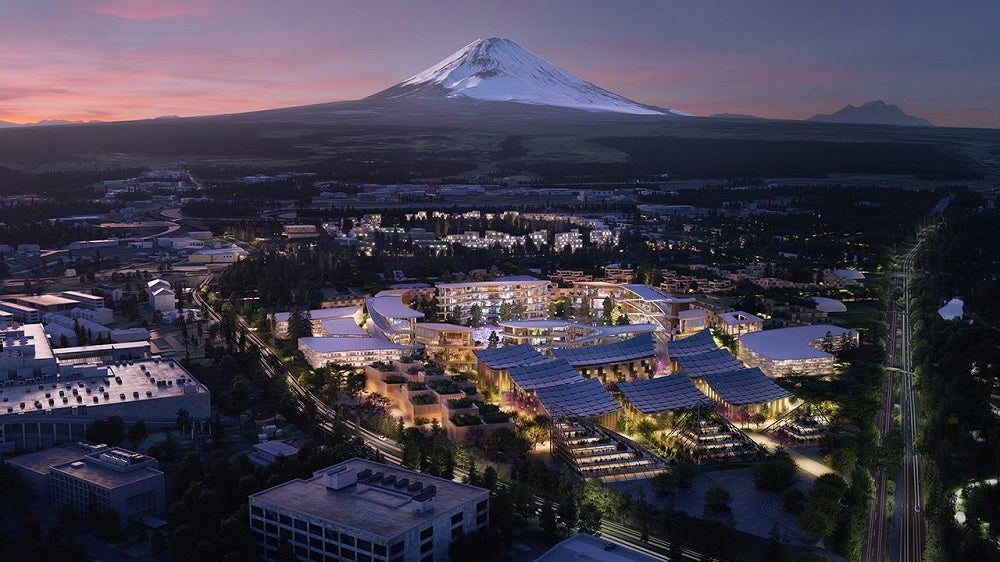
Hydrogen and solar will power a new “city of the future” in Japan being designed by Toyota.
The automotive giant unveiled plans at the CES tech conference in Las Vegas this week to build the “living laboratory” on a 175-acre site at the base of Mount Fuji.
Named Woven City, it will serve as a home to full-time residents and researchers, who will be able to test and develop technologies such as autonomy, robotics, personal mobility, smart homes and artificial intelligence in a real-world environment.
The “fully-connected ecosystem” will be powered by hydrogen fuel cells, which are regarded as a clean energy carrier due to the fact their only by-products are water and heat.
Work is expected to begin on the site in early 2021 and the city would be populated initially by 2,000 people – with Toyota staff and their families, retired couples, retailers, visiting scientists and industry partners moving there as the project evolves.
Toyota Motor Corporation president Akio Toyoda said: “Building a complete city from the ground up – even on a small scale like this – is a unique opportunity to develop future technologies, including a digital operating system for the city’s infrastructure.
“With people, buildings and vehicles all connected and communicating with each other through data and sensors, we will be able to test connected AI technology in both the virtual and the physical realms – maximising its potential.”
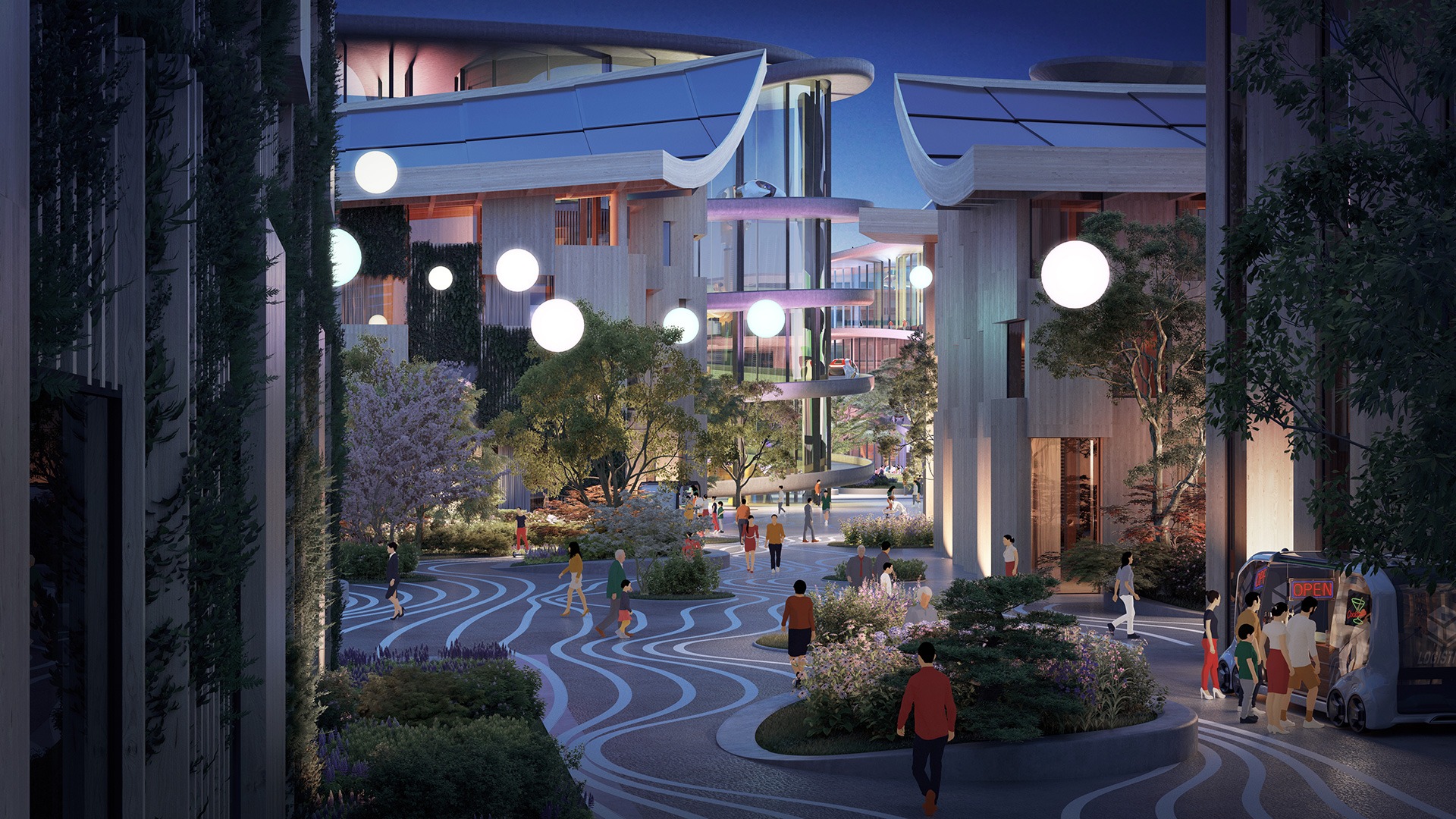
What is Toyota’s city of the future?
The masterplan of the city – which will be designed by the team behind Google’s Mountain View headquarters and Lego House – includes designating streets for three types of usage.
These are for faster vehicles only; a mix of lower speed, personal mobility and pedestrians; and for a park-like promenade just for pedestrians.
These street types weave together to form an organic grid pattern to help accelerate autonomous vehicle testing.
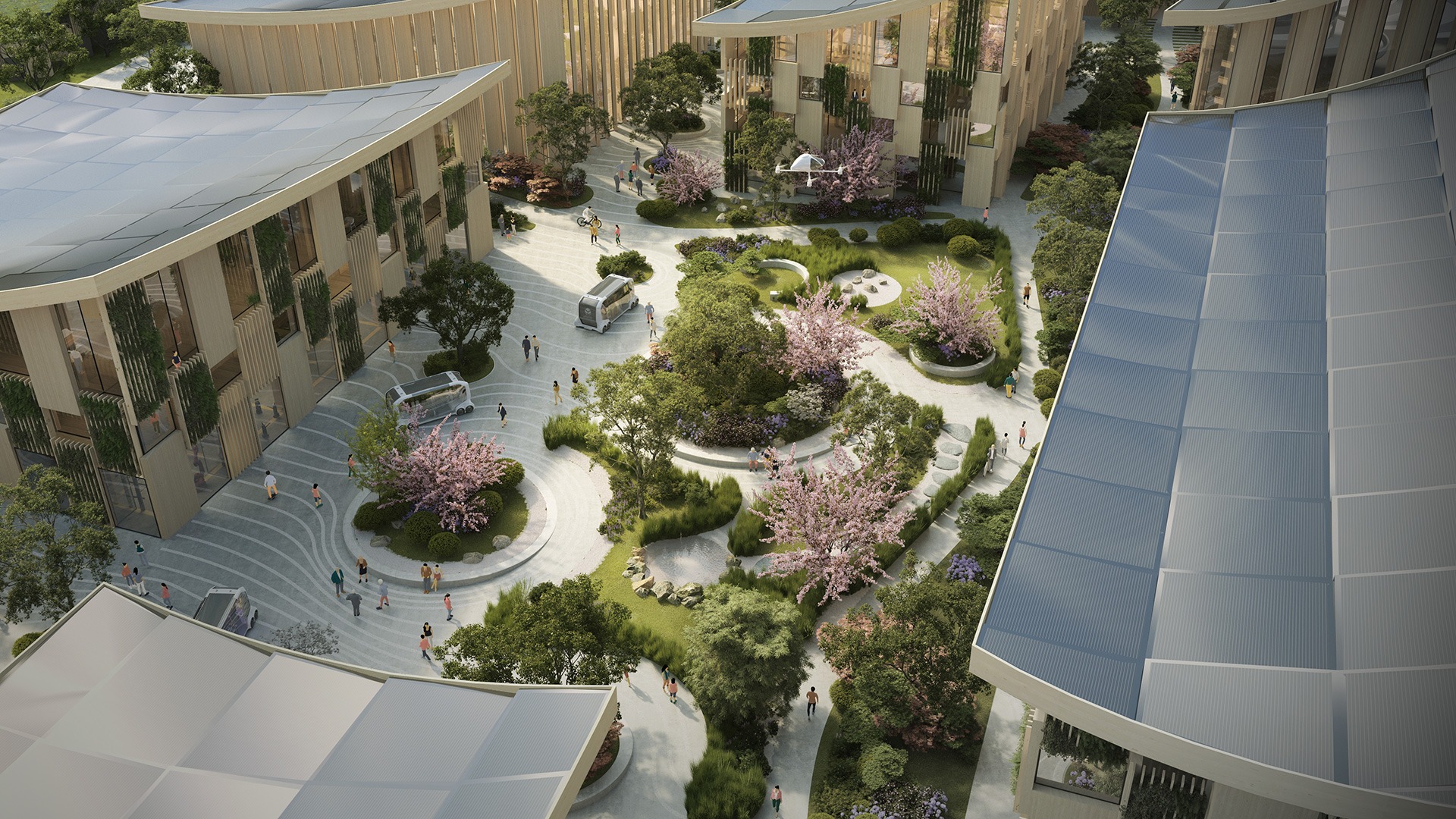
Woven City is planned to be fully sustainable, with buildings made mostly from wood to minimise the carbon footprint. Construction will involve traditional Japanese wood joinery combined with robotic production methods.
Rooftops will be covered in PV panels to generate solar power alongside the electricity generated by hydrogen fuel cells.
Native vegetation and hydroponics – a method of growing plants without soil by instead using mineral nutrients in a water solvent – will bring a green touch to the cityscape.
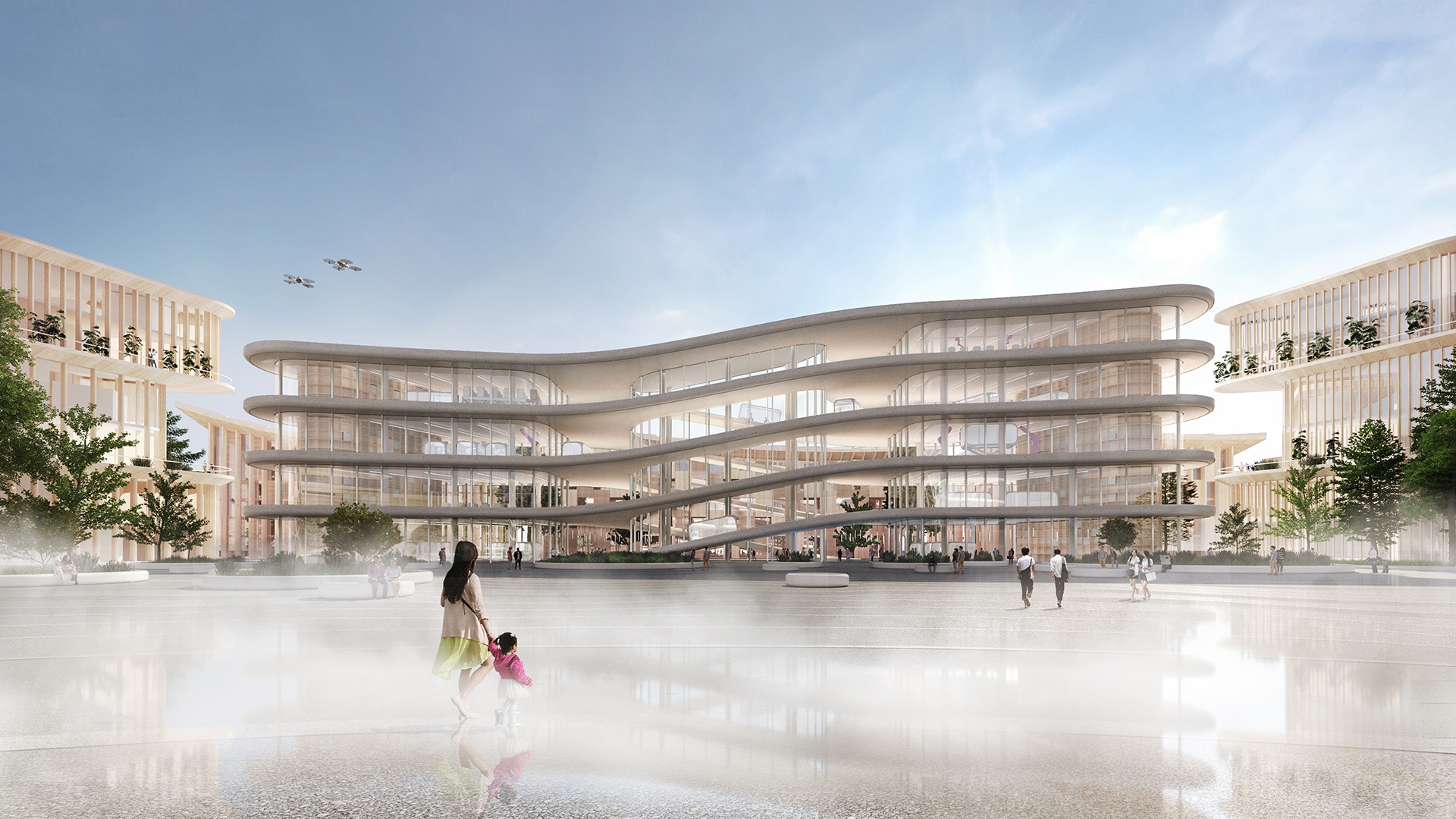
Parks and a central plaza for social gatherings will also feature as Toyota believes encouraging human connection will be as important to the city experience as new technologies.
Technology in Toyota’s city of the future
Homes will be equipped with the latest human support technologies, such as in-home robotics, to assist with daily living.
Sensor-based AI systems will check occupants’ health, take care of basic needs and enhance daily life, which Toyota believes would create an opportunity to deploy secure connected tech with integrity and trust.
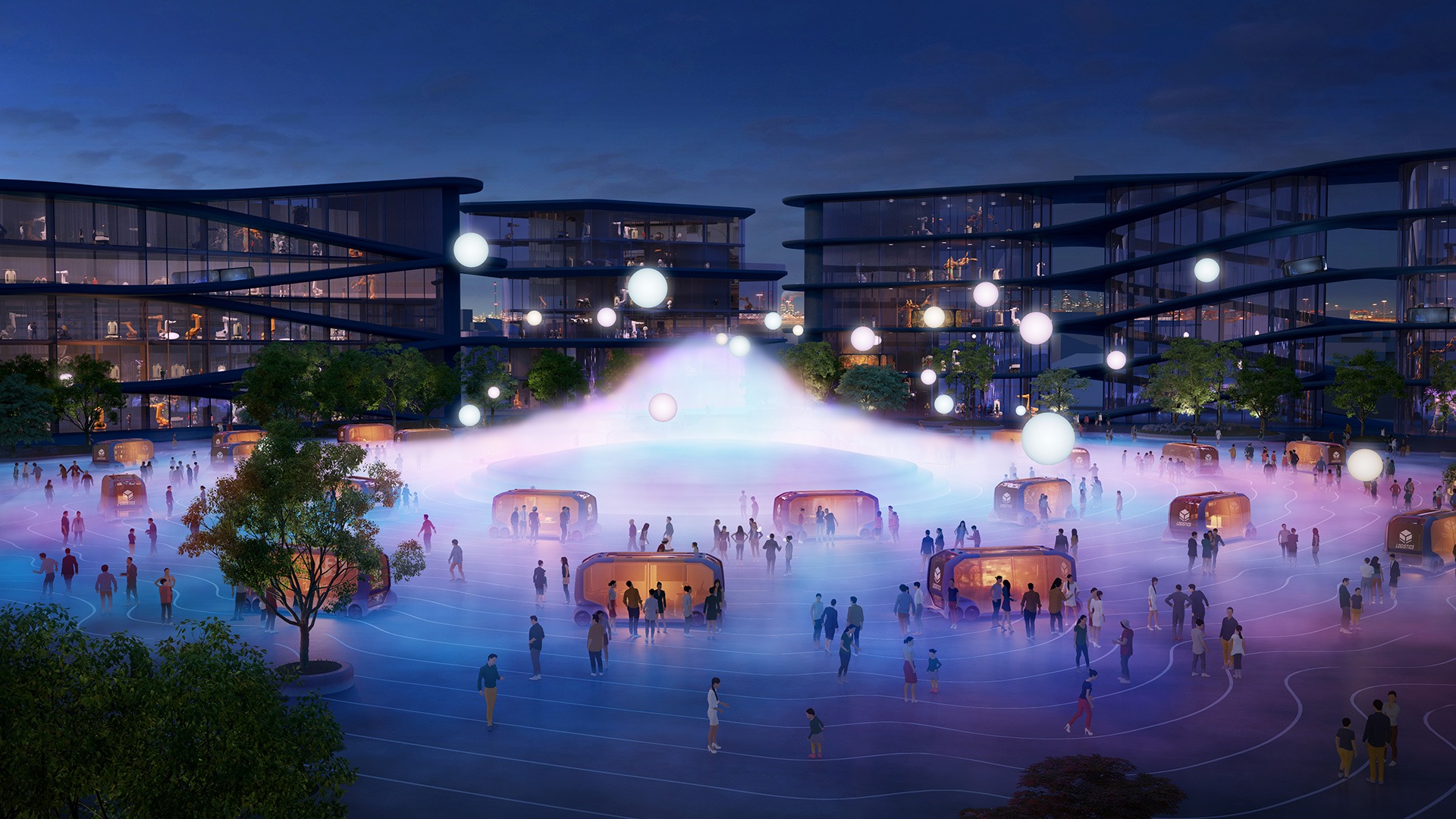
Only allow fully-autonomous, zero-emission vehicles will be allowed on main thoroughfares, while the Toyota e-Palette – a customisable self-driving vehicle still in the design stage that could be adapted for various functions – will be used for transportation, deliveries and even changeable mobile retail.
Who will design Toyota’s city of the future?
Toyota will extend an open invitation to collaborate with other commercial and academic partners and invite interested scientists and researchers from around the world to work on their own projects at the real-world incubator.
The company’s president Toyoda said: “We welcome all those inspired to improve the way we live in the future, to take advantage of this unique research ecosystem and join us in our quest to create an ever-better way of life and mobility for all.”
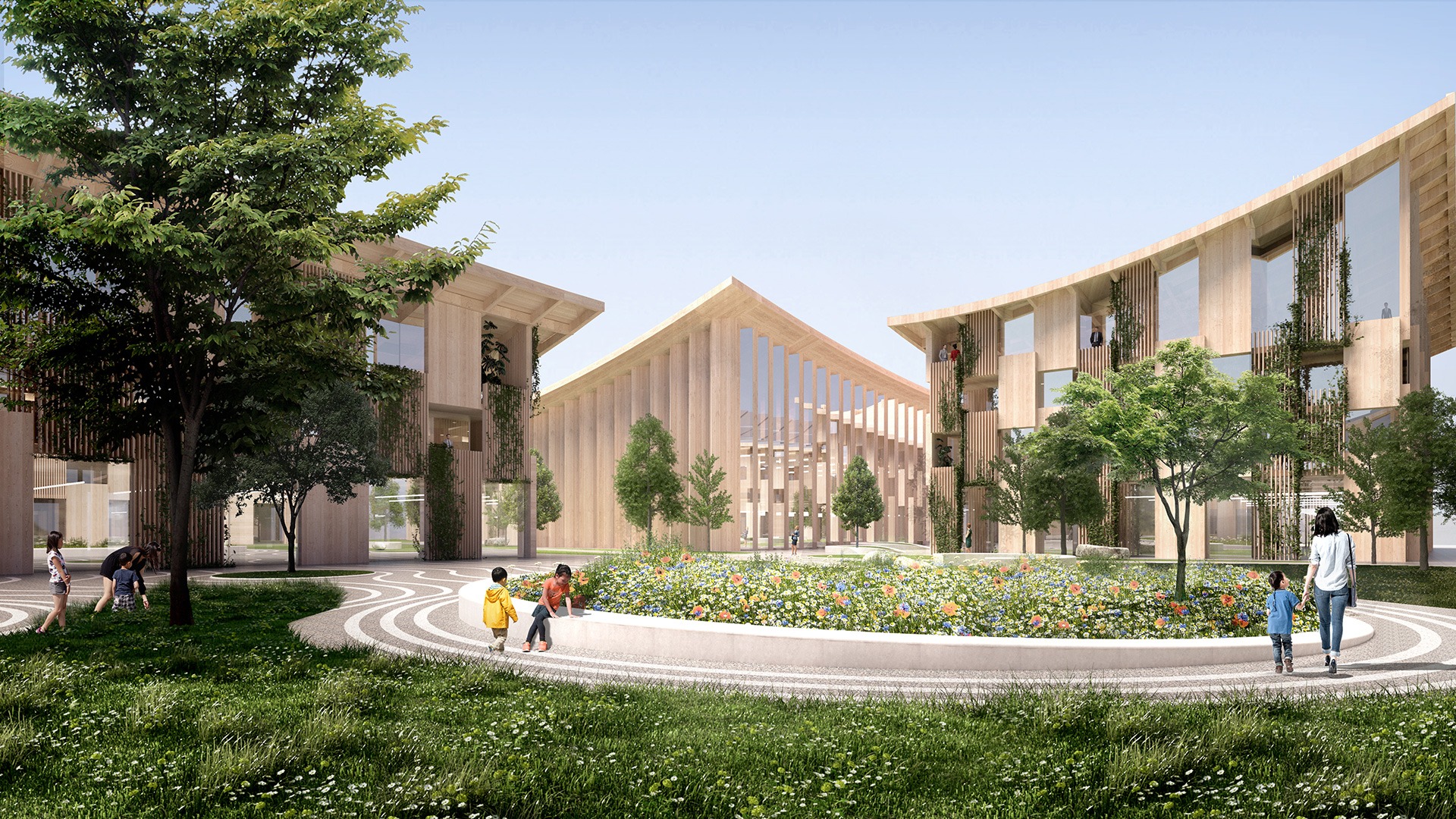
For the design of Woven City, Toyota has commissioned Danish architect Bjarke Ingels.
He is CEO of Bjarke Ingels Group, which has designed high-profile projects including 2 World Trade Center in New York, Lego House in Denmark, and Google’s Googleplex headquarters in Silicon Valley and its upcoming futuristic London campus.
Ingels said: “A swarm of different technologies are beginning to radically change how we inhabit and navigate our cities.
“Connected, autonomous, emission-free and shared mobility solutions are bound to unleash a world of opportunities for new forms of urban life.
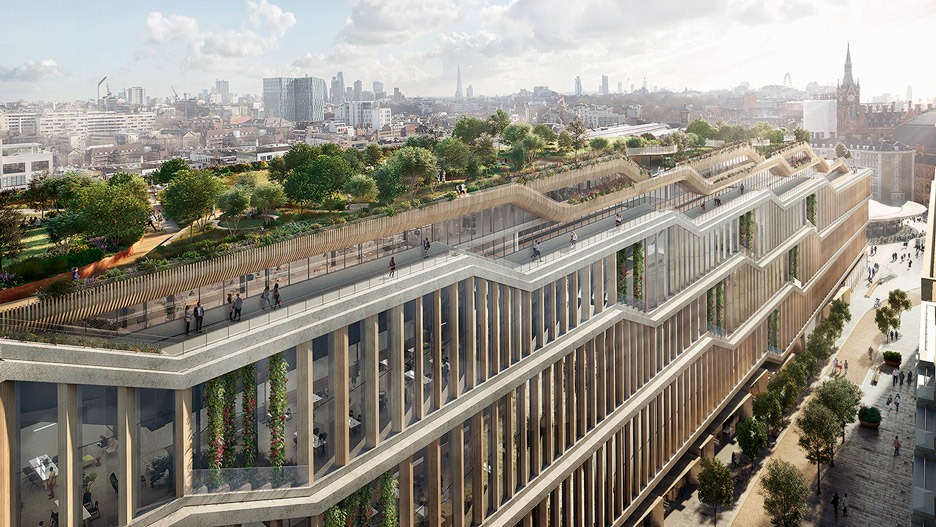
“With the breadth of technologies and industries that we have been able to access and collaborate with from the Toyota ecosystem of companies, we believe we have a unique opportunity to explore new forms of urbanity with the Woven City that could pave new paths for other cities to explore.”






